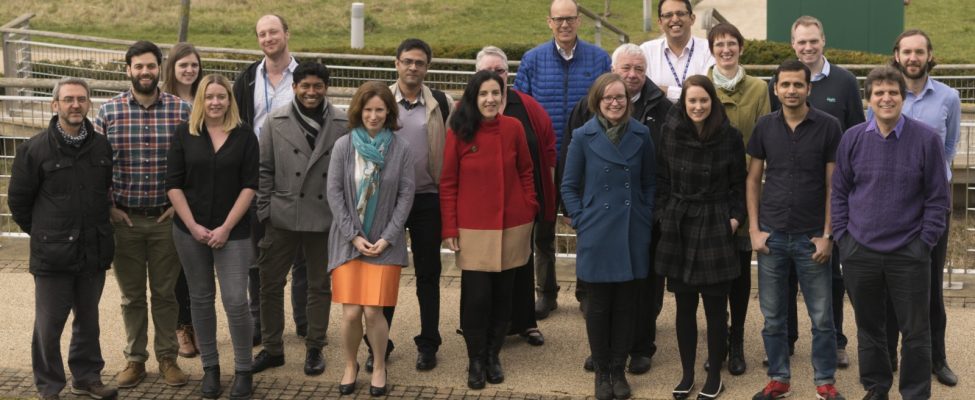Proteus

Hugely innovative in shortening the distance from bench to bedside, the QMRI-based Proteus project’s work is revolutionising the ways lung diseases are diagnosed and managed.
Here, Dr Annya Bruce, Project Manager Pulmonary Optical Molecular Imaging Group, and Professor Kev Dhaliwal, Clinical Lead, comment on the project, and on the importance of collaboration and co-location at BioQuarter.
Commencing in late 2013, the Proteus project has connected internationally renowned researchers, academics and PhD students. With partnerships leading the way, this University of Edinburgh project is further strengthened by involvement from staff and students at Heriot-Watt University and the University of Bath. The result is new, non-invasive advances for patients experiencing a range of lung conditions.
Novel imaging
“Proteus is using light to diagnose and monitor lung diseases.” explains Dr Annya Bruce, “We have developed small molecules that, when administered into the lung, fluoresce when recognising, for example, a bacteria or cancer cell. Our novel imaging capabilities capture these Smartprobes, enabling doctors to visualise disease in real time. That removes the need to take a biopsy or culture, safely accelerates diagnosis and helps clinicians tailor medication.”
Whilst it’s true that manufacturing for optical imaging is carried out by other research groups, Proteus is leading the field, as Dr Bruce explains, “Our solution uses multiple colours of molecules, so different Smartprobes can simultaneously illuminate different disease processes. This cannot be done without our technology.”
Devising solutions
Helping drive the project’s discoveries is the co-location of disciplines, skills and centres Proteus finds at BioQuarter. “Access to the Royal Infirmary of Edinburgh, and to clinical colleagues, expedites how we test and trial our technology.” says Dr Bruce, “On campus we can speak with pulmonary clinicians, intensive care clinicians, kidney clinicians. That brings opportunities for Proteus to identify problems colleagues are facing in their clinics and then return to our labs to devise a solution.”
These are advantages recognised also by Professor Kev Dhaliwal, “The ecosystem and co-locations at BioQuarter bring scientists and talent. On site, the University runs a doctoral training centre and that’s attracting PhD students and industry. BioQuarter’s offering is holistic, and it’s becoming more powerful. That translational proximity is critical to Proteus.”
With a second major EPSRC (Engineering and Physical Sciences Research Council) grant recently secured, and with an award from the US funding body CARB-X (a global first for a University), plus translational funding from the Wellcome Trust, the future is bright. “For Proteus, our focus will be on product development, commercialisation and strengthening international relationships.” says Professor Dhaliwal, “That is how we will change the health outcomes for as many patients as possible.”
“The ecosystem and co-locations at BioQuarter bring scientists and talent. BioQuarter’s offering is holistic, and it’s becoming more powerful. That translational proximity is critical to Proteus.”



